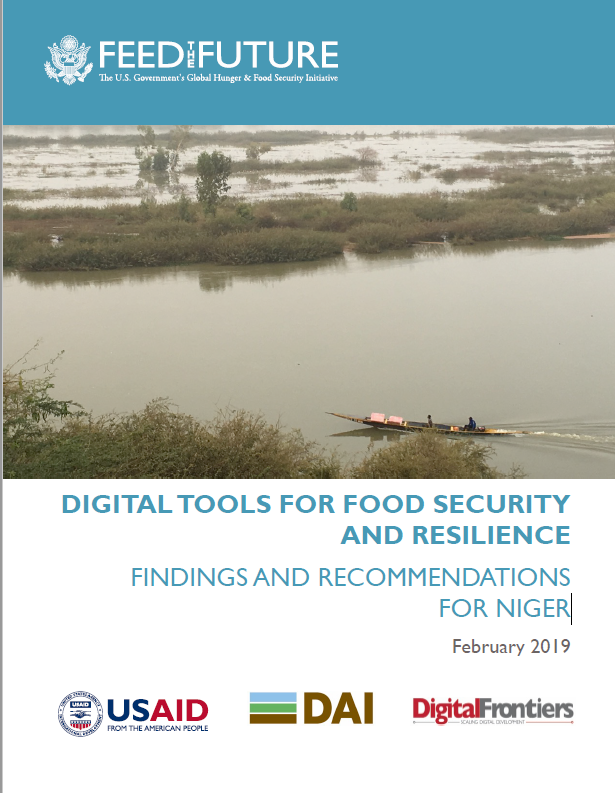Speeches Shim
The USAID Sahel Regional Office (SRO) in Dakar requested that the USAID Bureau of Food Security (BFS) and the U.S. Global Development Lab (the Lab) conduct an assessment of the current and potential use of digital tools to enhance the reach and impact of its activities aimed at food security and resilience under the new U.S. Government Global Food Security Strategy (GFSS) country plan for Niger. The assessment was broadened to include USAID/Burkina Faso given its joint resilience programming and relevance as a USAID resilience focus country.
This report covers the second part of the joint assessment, conducted through desk research and a 10day trip to Niamey, Niger. The assessment team was managed by DAI’s Digital Frontiers initiative and supported by Katie Hauser in the Bureau for Food Security. The team found, in contrast to Burkina Faso, telecommunications services were less robust with only 32 percent market penetration (unique cell phone subscribers), coverage across 55 percent of the country (with likely less connectivity in rural areas), 3G service (good enough for mobile internet) but no 4G service at all (needed for robust cell phone applications), and only 28 percent of connections via smart phones. Still, the team found that Niger’s digital ecosystem (service providers and organizations that support them) was adequate with a handful of local firms. The national government has a strong digital initiative, Niger 2.0, that includes strong encouragement of local entrepreneurs as well as an innovative effort to improve the digital literacy of all Nigeriens. Supported by a World Bank project, the public extension service (RECA)1 was also implementing a suite of e-extension services to support public and private extension agents.
Hence there are opportunities for SRO’s activities to take advantage of digital tools and services to increase their reach and impact. Care must be taken in the design of any such tools and services to accommodate the country’s low literacy, the probable gender gap related to the use of digital devices (no data are available to confirm this but it is likely), and gaps in telecom coverage in rural areas.
Most RISE implementing partners (IPs) were using digital solutions to some extent, especially for monitoring and evaluation and via radio or ad hoc WhatsApp groups. All IPs were interested in learning more about using digital and were generally unaware of how others were using digital. There were two private IVR (interactive voice response) services starting up—one international, one local—and a drone company (from Burkina Faso) exploring ways to monitor land restoration efforts. There were two digitally enabled water services, one for urban users and one for irrigation.
Use of mobile money and formal financial services is lower in Niger than other countries in the region, and is lower still for women and in rural areas. There are three mobile network operators (MNOs) offering basic mobile money services, though awareness and usage remains low. There are not yet any advanced digital financial services (DFS) such as digital credit, savings, or insurance available in the market.


Comment
Make a general inquiry or suggest an improvement.